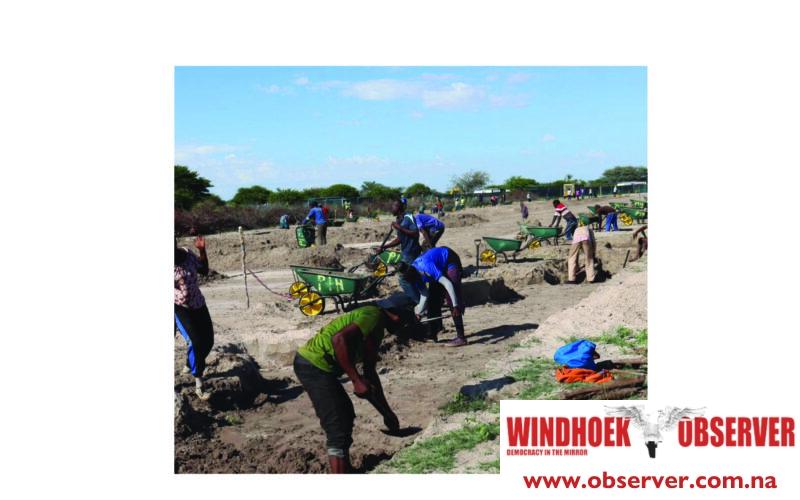Allexer Namundjembo
Workers on the Omuthiya–Elambo road project say are facing unsafe conditions and low pay.
The 59 km road, launched in August 2025, is expected to take two years to complete with funding from the Namibian government and external partners, including German entities.
The workers clearing land in Okakoko village for Borromean Contractors on Wednesday said they are not given protective equipment.
A site visit by the Windhoek Observer found labourers cutting trees and clearing thorny bushes without gloves.
Workers say they are earning N$108 per day, with no transport provided, forcing some to walk more than 20 km to reach the site.
They also said they are not registered with social security and have no contracts.
“The rate is low, and we are doing hard labour; we have to walk to work,” one worker said. The same worker added that they feared injuries would go unrecorded and uncompensated.
Another worker said, “We have no other option but to work. But we do not appreciate the amount we are being given.”
However Borromean Contractors have defended the company saying that the workers have contracts.
The company said it has recruited workers as part of a community initiative and only trained workers are picked up and dropped off for duty.
“There are workers like those who put up fences on fields. We have trained them, and they are the ones who are picked up and dropped off at their duty stations,” the company explained.
It added that contracts are made available to the workers’ supervisors.
Meanwhile, landowners affected by the road construction have raised concerns about the compensation process.
They questioned how the rates were calculated, pointing out that plots of 200 m² have been valued at just N$200.
One landowner said, “They first said N$12 000, but the final amount is N$2 400.
That seems extremely low.” A compensation document seen by Windhoek Observer lists cultivated land at N$5 000, grazing land at N$2 500, a lemon tree at N$3 500, a guava tree at N$1 000, a marula tree at N$15 000, an Omuve tree at N$12 600, enclosure fencing at N$75, a goat pen at N$90, and cement structures with mud flooring at N$180.
Reports place the project cost between N$188.6 million and N$500 million. The Oshikoto Regional Council and the Roads Authority are overseeing implementation.
At the launch, minister of works and transport Veikko Nekundi announced that gravel roads will no longer be built.
He said tarred roads will now be constructed to reduce long-term maintenance costs.
Nekundi instructed contractors to finish the road on time and within the N$188.6 million budget, warning that consultants and project managers would be held accountable for delays or mismanagement of funds.
Efforts to obtain comment from Roads Authority chief executive officer Conrad Lutombi were unsuccessful.




